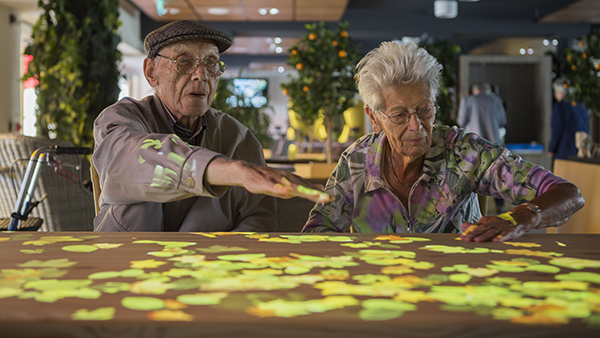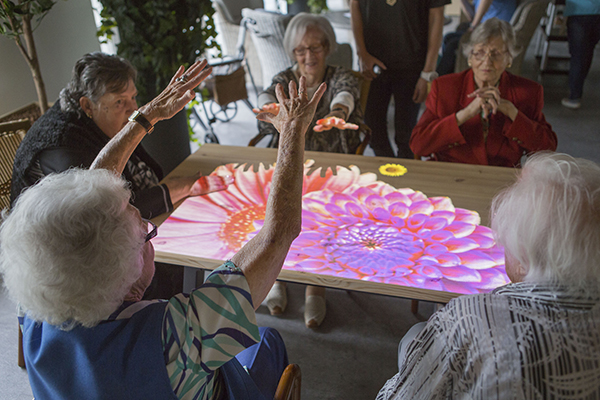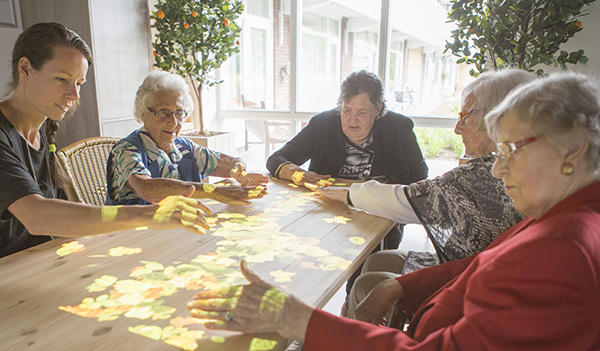Guest contributor John Ramsay, co-founder and CEO of Shift8* – a set of fun, interactive games for people with dementia – shares his story and some advice on helping a loved one navigate their dementia journey.
Dementia is now considered to be one of the most significant health challenges of our time. More than 50 million people are currently living with dementia around the world, and the number is predicted to soar to at least 130 million by 2050. With an ageing population, the condition will only continue to grow more prevalent.
My father was only 52 when he was diagnosed with early onset dementia, changing our lives forever. From being an established orthodontist to not being able to complete daily tasks, I witnessed his changes in what felt like the blink of an eye. I had to learn how to adapt quickly and spent my time looking for ways to make sure he was happy and comfortable.
Dementia can have damaging effects on a person, especially on a person’s memory. The best way to understand it is by using the analogy developed by The Alzheimer’s Society: envision a bookshelf filled with books that contain skills and memories that have been collected over a lifetime, with the short-term memory books at the top and the long-term memories at the bottom. Now, picture the bookshelf being rocked by dementia; it shakes, and the top books start to fall down. This is how confusion can occur; when someone with dementia muddles all of the books together, it can cause them to think that their most recent memory is actually something that happened 20 years ago.

However, the introduction of the latest technologies and compelling research from world-class health professionals has given key insight not only to healthcare professionals and those living with dementia, but their loved ones who can help support them. Another positive result from this is the improved relationships with the community, as well as encouraging people to think more creatively and positively about their approach to dementia care.

The game John has created, the Magic Table, has participants use their hands to move the lights around on the table
Research has revealed there are nine strategies to help people who have dementia so they feel supported. These include: injecting humour into the day, being optimistic, having awareness, creating a sense of safety for them, giving personal attention, creating a sense of community, allowing for relaxation and also time to reminisce. You can incorporate elements of all nine things at home for your loved one, helping to reassure them and your wider family.
How to help someone with dementia
Each person will go through their own unique and personal experiences when dealing with dementia, but there are ways to make sure you and your loved one can create many moments of happiness together with a handful of adjustments to daily living:
1) Optimising the environment for your loved one
Creating a supportive environment for your family member can be the key to ensuring you are providing high-quality care for them. The ideal setting is somewhere that’s personalised for them, with an element of interaction, collaboration and motivation. One thing to note is the importance of consistency – to avoid confusing your loved one, it’s best to limit the number of changes made to their routine all in one go. Try to keep certain things at set times, for example, always making a cup of tea at 4pm.
2) Taking a walk down memory lane
As I’ve mentioned, dementia can cause a lack of clarity between long and short-term memory, which can confuse people. It can also be frustrating for the family/carer. However, instead of getting upset, use this as an opportunity to delve into the past. This was a method I frequently used with my father, who was an avid rugby fan, often recounting his favourite games with me that he’d watched when he was younger.
3) Stimulating the mind through games
There have been studies into the effects game playing can have on people with dementia, so this should be high on your list of things to implement. Dementia can cause people to feel out of touch and alone, subsequently making them passive for the majority of the time. Playing games, however, brings people out of that lonely place and helps stimulate their brain, thereby improving their quality of life.

Shift8 has created the Magic Table to encourage those with dementia to join in with engaging, brain-stimulating puzzles
4) Creating greater community spirit
Not only does looking to your community for support give you a chance to meet like-minded people dealing with similar things as you, but it also gives your loved one a chance to interact with people in similar circumstances. There are lots of towns and cities around the UK with a dementia-friendly hub, such as libraries or a memory café’s where people can come together and feel safe.
By doing the above things when I was caring for my father, I was able to make sure he was happy and mentally stimulated. I spent most of my adolescence caring for him, along with my family, and while it was tough it was incredibly rewarding, too. Those experiences have also helped lead me to what I do today: working with technologies to help those on their dementia journey. My family and I are thankful we were able to create so many happy memories with my Dad, and I hope you’re able to do the same with your loved one.

John Ramsay, CEO of Shift 8, which is helping those with dementia








